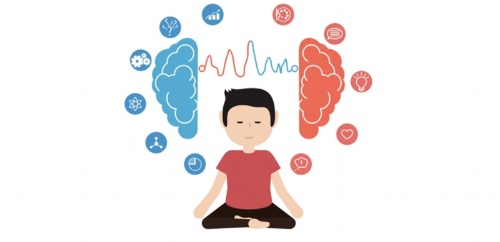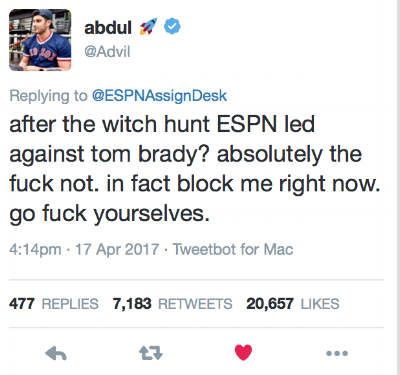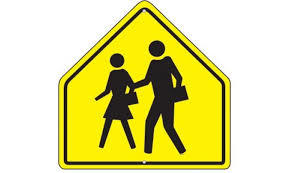Matthew Dicks's Blog, page 276
April 27, 2017
I made an old woman cry. Was I wrong?
I'm standing in line at McDonald's, waiting patiently to order my daily Egg McMuffin.

The woman in front of me is having a problem. She's an old lady in the truest sense of the word. She's as crooked as a question mark and is holding a cane. She's ordered a "Big Breakfast Egg McMuffin" and received a Big Breakfast and an Egg McMuffin.
She's not happy.
She only wants the Egg McMuffin. She's added the words "big breakfast" to her order for reasons I cannot glean, but somehow, I know what has happened. Years of managing McDonald's restaurants makes the problem immediately clear to me.
I stand behind her and remain silent. I know that I inject myself into too many of these kinds of situations. Elysha has asked me to stand back and avoid conflict like this whenever possible. She worries about how people will react to my mouth. So I'm going to leave this to Janet, the employee who I see every day and know well.
Except that Janet is struggling to figure out the problem because the woman is yelling at her. Flailing her hands. Janet is frazzled by the sudden outburst of anger. She's unable to put two and two together.
I remain silent. I'm not going to involve myself. The woman is angry and treating my friend poorly, but my involvement will probably not go well.
The manager, who I also know, arrives and quickly identifies the problem. She explains the source of the confusion to the woman. She says that she will remove the Big Breakfast and refund the money. She grabs a scrap of paper to subtract the price of the Big Breakfast from the bill.
The woman shakes her hands violently and shouts, "Just give me my money!"
At last the issue is settled. The order is correct and the refund is complete. The woman moves off to prepare her coffee. I step forward and smile at Janet, who is still flustered. I wink. She smiles. She enters my order without me saying a word. I take my cup over to the soda station to pour.
The old woman is still there, stirring her coffee. I add ice to my cup and take a step closer to her to pour my Diet Coke.
The old woman turns to me and says, "These people are so stupid. How do you get this far in life being this stupid?"
I have done my best to remain uninvolved, but now she is speaking to me directly. Not only am I vigorously opposed to behind-the-back cruelty, but she is insulting people who I think of as friends. These are women who I see every day and exchange pleasantries with quite often. I feel like I must now say something. The woman has all but demanded a response.
Without missing a beat or considering my words, I say, "I think it's despicable when a person talks behind the backs of others. Despicable and disgusting. For the rest of my day, I'm going to tell every person I see about the despicable and disgusting thing that you just did."
And then she begins to cry.
This event took place in September. I asked my students what they thought of my actions. Most believed that my behavior was perfectly acceptable until I added the last sentence beginning with "For the rest of the day..."
"Over the line, Mr. Dicks," one girl said.
Many of my friends felt that my entire interaction was inappropriate. They suggested that it was not my place to impose my morals on this woman.
I reminded them that I did not interject myself into the conversation. She spoke to me.
That didn't matter for most.
Others argued that I was caustic and cruel to an older woman, and that I should've tempered my words because of her age.
I argued that this was agism.
None agreed.
Others argued that my words made no difference in the future behavior of this woman, so I caused needless pain and suffering for no result.
I suggested that this woman might think twice the next time she wants to criticize someone behind her back to a stranger.
Most disagreed.
Looking back on the incident with the advantage of time and perspective, I still believe that my actions were just. That old woman involved me in the situation after my attempts to remain silent. I simply spoke from the heart and said what I believed. I didn't consider her age a handicap to decency or discourse, and I genuinely believed - and still do - that our encounter might temper this woman's future acts of behind-the-back cruelty.
I tell this story today because of a response to a post on the ridiculous use of imperatives in argumentation. A friend on Facebook reminded me that "All that is necessary for evil to triumph is for good men to do nothing!"
I don't think that the woman was evil, but I also couldn't allow such condescension and cruelty to go unchecked when directly involved.
I wasn't happy that the woman began to cry, and it certainly made for an awkward pour of my Diet Coke and a hasty retreat, but I said what I thought needed to be said. It would've been easy to ignore the comment. Nod and move on. Even explain to the woman that I know the employees well and are always impressed by their professionalism and performance.
But after watching this woman shout and flail and condescend, I didn't think gentleness was in order. "If you're going to dish it out, you have to be able to take it" is an expression that has always rung true for me. I think it applied well in this situation, despite the tears.
Thoughts?
April 25, 2017
Demanding "a seat at the table" doesn't strike me as very demanding
I recently heard someone arguing for "a seat at the table" for the members of her organization.
"A seat at the table" has always struck me as the marginal end of what you should be striving for if you're hoping to affect change.
Nothing wrong with it, but oftentimes not exactly a game changer, either.
A seat at the table doesn't guarantee much more than the opportunity to listen to everyone who already had a seat, and when you finally have a chance to speak, no guarantee that anyone will listen.
Perhaps instead of fighting for a seat at the table, you should attempt to upend the table instead.
Then again, "a seat at the table" may just sound too much like an endless string of meetings to strike me as very useful.
I never want a seat at the table if it means another meeting.

April 24, 2017
I don't teach mindfulness. Don't ever accuse me of teaching mindfulness. Here's why.
When I teach storytelling, and especially when I teach about finding stories in your life, I'm often told by students that what I'm really teaching is mindfulness.

When I hear that word, I want to toss the person right out of my workshop. I push back immediately, rejecting any application of that word to what I do.
The last thing I want is for someone to accuse me of teaching mindfulness, for two reasons:
I believe in simplicity. Easily defined, simple-to-apply strategies that offer immediate results. I break the art and craft of storytelling down into small parts and then teach those small parts in such a way that my students can begin using them almost immediately. Mindfulness is not an easy-to-define, simple-to-apply strategy. It does not produce instantaneous results. It's a large, amorphous umbrella that means different things to different people. It's a philosophy of change, and I don't like philosophy in these circumstances. Philosophy is too big. Too easily misunderstood or disregarded. Too difficult to quantify results.I like small. Simple. Bite sized learning that I can model and teach easily and can be reproduced in my students flawlessly.
Labeling my instruction as mindfulness (or "a form of mindfulness") is dangerous to my business. Say "mindfulness" and about half the people take a step forward, intrigued about what you have to say, but the other half head for the hills, and for good reason. While I don't discount the value and potential benefits of mindfulness, too many people have turned this philosophy into something unpalatable and bizarre to enormous swaths of people.
Mindfulness is kooky. Weird. Mumbo-jumbo. Touchy-feely.
Don't believe me?
The New York Times published a piece last week on the mindful cleaning of the bathroom.
"With the practice of mindful cleaning, you can transform this once boring activity into a nourishing and enjoyable moment to yourself."
This is not a joke. Here is what Matt Valentine, who runs Buddhaimonia.com, has to say about mindful bathroom cleaning:
Once you’ve selected your cleaning tool, take a moment to notice it with your various senses. Feel the soft texture of the sponge or hardness of the mop grip.
As you begin to clean, remind yourself that you’re cleaning to clean. You’re not chasing a result, a “clean bathroom.” Give your full presence to the act of cleaning.
Start by noticing the body. Notice as you raise your arms, move your hands, bend or step. Notice your breath as your chest rises up and down.
Now place your focus on the repetitive motion of wiping with the sponge or mopping the floor. Maintain your focus on each circular, left-to-right or up-and-down motion.
You can choose to match the cleaning motion of your hands with the rhythm of your breath. As you breathe in, wipe twice. As you breathe out, wipe three times. This helps further sync your attention with the physical activity of cleaning.
If we can be mindful while cleaning the bathroom, we can be mindful during any moment throughout our daily lives.
— Matt Valentine
I don't want any part of this. While I hope that Valentine's suggestions help people in their pursuit of mindfulness in all aspects of their lives, I find advice like this kooky. Bizarre. Ridiculous. A waste of time.
I don't want anyone to think that what I teach has anything to do with what Matt Valentine teaches.
No thank you.
I don't teach mindfulness. I teach storytelling. Public speaking. Along the way, you may learn something about yourself. You may begin to see yourself and your life in an entirely new light. You may start to see connections between moments in your life that you never knew existed. You may come to understand your past in a way you never imagined.
But all of this will come easily defined, simple-to-apply strategies that offer immediate results.
April 23, 2017
The law of choice in dating (and a call for the end of tribalism)
I've been thinking about how tribalism can be so limiting when it comes to finding and choosing the right spouse. When you choose to be inclusive to a particular sex, religion, race, nationality, or socio-economic status, you eliminate vast swaths of human beings from your dating pool.
I don't think this is good.
The basic tenet of this belief is this:
The more choice you have in potential spouses, the greater the possibility that you will land your ideal mate, and therefore the greater the chance that you will end up in a happy marriage and remain happily married for life.
The fewer choices you have, the greater the likelihood that you will settle for someone less than ideal. You will opt for the best of your self-limited pool of candidates. Perhaps you'll never even be exposed to the ideal. Never understand what the ideal could be.
Right?

If I have 100 potential spouses in my dating pool, for example, and you only have 25 in your dating pool, the chances that I will find happiness is far better than yours.
Therefore, it only serves to reason that bisexual people have the greatest opportunity at the ideal spouse. While heterosexual people automatically limit their choices by 50%, bisexuals do not.
The world is their oyster.
There are men who I have loved, for example, who I could not marry because I was not physically attracted to them. A bisexual person might have had that opportunity.
Sex and gender are not limiting factors for these lucky people.
If you only date within your race, you also have less choice and therefore less opportunity at finding the ideal spouse. If you only date within a race that is also a minority, then your choices are increasingly limited.
The same goes for religion. If you’re Jewish, for example, and you will only date within your religion, you have limited your choices enormously, particularly if you're living in the United States, where less than three percent of the population is Jewish.
And some places are more challenging than others. If you live in the Dakotas, there are fewer than 1,000 Jews between the two states. This means that there are only 500 potential dating partners, and only if every Jew in the Dakotas is single.
It's a miracle that any Jew in the Dakotas finds any fellow Jew to marry.
And if your brand of Judaism plays a role, too, your percentages are reduced even further. Once you start slicing the religious pie into slivers, the numbers get exceedingly small/
My wife is Jewish. Thankfully, she did not limit her choices of people who shared her religion. If she did (as many Jews do), we would not be together today, and Clara and Charlie would not exist.
I've always admired Elysha's willingness to date outside the religion and forgo tribalism, because it's not always easy. There is enormous pressure by certain elements of the community to marry within the religion. Had her parents applied similar pressure, it would've been even more difficult for her to date and marry me.
But not impossible.
Many people don't see Elysha as a nonconformist and a rebel, but that is exactly what she is. In many ways, she has been more than willing to blaze her own trail and reject the expectations and norms of society. She does this absent of any fanfare or bluster (unlike her husband), but that rebel streak is alive and well.
I'm thankful and grateful. We are together today in part because she rejected the expectations of a community and opened her heart and mind to the world. I think we are both happier for it.
Tribal pressure can be insidious at times.
I have a Portuguese friend who parents would not allow her to marry someone who was not also Portuguese.
I have a Nigerian friend who was disowned by her family for marrying outside the culture.
I had an African American coworker who lost friends when she married outside her race.
I've known Jews whose lives have been upended (and relationship destroyed) when they fell in love with people outside the faith who their parents rejected.
As a person whose parents have always held little sway over the course of his life, it's easy for me to argue against rejecting the expectations and norms of parents who have seemingly placed their own needs and desires ahead of their children's needs. It's easy for me to suggest that you should push back against culture and society when that has always come easy for me.
Still, it needs to be done, because tribalism makes no sense when it comes to finding a person who can make us happy. If we want our children to be happy - and if we want to be happy - we should open our hearts and minds to all possibilities. It only stands to reason that the less tribal you are, the greater your likelihood of finding happiness in your marriage.
The more willing you are to look beyond the confines of sex, race, religion, culture, familial expectations, and the like, the greater your chances of finding the ideal spouse.
The greater the chances of you knowing what an ideal spouse can be.
This is not to say that if you only date within your minority group that you cannot find happiness. I'm simply implying that your chances are enormously limited, and even worse, your chances of even knowing what happiness could be are reduced.
You may never know real happiness.
Then again, you may believe that there is a multitude of ideal spouses in the world for any one person, and therefore your chances of finding one even within your minority group is good.
If you are of this opinion, bully for you.
April 22, 2017
Memoirs of an Imaginary Friend fan art
Illustration of Budo, Max, and Graham from Memoirs of an Imaginary Friend, drawn by Stephanie at Manchester High School during a recent visit to talk about my Nutmeg Award nominated novel

April 21, 2017
The essence of a New England Patriots fan and a Bostonian in 5 tweets.
This is a beautiful story. If you ever lived in Massachusetts, and especially in the greater Boston area, this will ring so true.
People in the Boston area are hardcore.
It's Marathon Monday in Boston. As the runners make their way along the race route, a man stands on the side of the road, encouraging them with this sign that reminds them that in the third quarter of the Super Bowl, the Patriots were losing to the Falcons 28-3.
Keep going, marathoners. Don't give up. Anything is possible.
On Twitter, Addul Dremali, a biomechanical & data scientist and amateur photographer, posts a photo of the unidentified man and his sign.

About an hour later, ESPN tweets at Dremali, asking if they can use the photo on all their platforms with a credit to him.

This is where things get beautiful. With the opportunity to have his photo, name, and Twitter handle disseminated across ESPN's enormous and far reaching platforms, Dremail responds like a true and absolute Patriots fan.
This is a perfect reflection of what the people of Boston and its surrounding communities are like:
Fanatic, aggressive, perpetually angry, and so rarely self-serving.
Forgive Dremali's language. It's also authentic to the Boston area.

That is a thing of beauty. The perfect response by a man who had an opportunity to gain a little notoriety (in a culture where people will do almost anything to gain notoriety), and he decided to be a fan instead.
About 30 minutes later, Dremail is contacted via Twitter by another news agency, requesting to use the photo. Their tweet is hilarious.

One minute later, Dremali responds perfectly.

April 20, 2017
School lunch shaming needs to stop. Simple solution: Adults need to stop acting despicable.
As a kid who received free breakfast and lunch for his entire childhood, I am keenly aware of the stigma, embarrassment, and shame associated with not having enough money to feed yourself.
As a child, teachers took the daily lunch count by asking us to raise our hand if we were:
Buying hot lunch
Buying cold lunch
Getting free hot lunch
Getting free cold lunch
Just writing those words brings me right back to the shame and embarrassment that every morning held for me.
Later on, when I was homeless as an adult, I never looked into the possibility of soup kitchens or other programs to feed the homeless for the very same reasons:
I'd rather be hungry than humiliated.
I had thought that the system of requiring kids to raise their hands to indicate their economic status was a thing of the past. I assumed that it was a careless, thoughtless process that teachers and other school officials eventually recognized as wrongheaded and insensitive.
Then I read about the food shaming that is currently going on in schools around the country.
"In Alabama, a child short on funds was stamped on the arm with “I Need Lunch Money.” In some schools, children are forced to clean cafeteria tables in front of their peers to pay the debt. Other schools require cafeteria workers to take a child’s hot food and throw it in the trash if he doesn’t have the money to pay for it."
In other towns, children were made to wear a wrist band or perform chores in exchange for a meal. Oftentimes an alternative meal is provided when a child is short on funds, signaling their family's financial difficulties to the rest of the student body.
It's disgusting. Worse, these policies are being enacted by adults who have been trusted to teach and protect children. How can any adult with even a shred of decency do this to kids?
I suspect that the reasons are many.
Stupidity
Expediency
Callousness
The desire for profits (school cafeterias are often separate businesses run inside the school)
But I suspect the most common reason for this food shaming is an absence of empathy. A failure to understand the stigma and shame associated with being poor. A lack of contact with people in a different socioeconomic class.
Recently, I was debating a point with my cohost on our podcast, Boy vs. Girl, when she argued that my experiences with poverty (the removal of all parental support at the age of 18, my struggles with poverty and hunger, and my eventual homelessness) were not normal.
I pushed back - perhaps not hard enough - on this idea. While hunger, homelessness, and poverty may be unusual experiences for people in the socioeconomic circles that I now occupy, these conditions are unusual at all for people in a lower socioeconomic classes. Food insecurity, lapses in adequate housing, and even homelessness are not uncommon. When I was poor, I knew many people who spent months and even years couch surfing, squatting, living in cars, living in tents, and trapped in the eviction cycle.
I had family members who were homeless for a time.
I think it's easy to forget about these people when we don't see them everyday. It's easy to underestimate their numbers when they don't occupy our social circles. It's especially easy to forget about them when they try like hell to disguise their poverty in an effort to preserve their dignity, as so many do.
As I did.
48 million Americans - including 13 million children - live in households that lack the means to get enough nutritious food on a regular basis. As a result, they struggle with hunger at some time during the year.
These people exist. They exist in large numbers.
It's hard enough to be poor. It's terrible to be hungry as a child. The last thing these kids need is their school highlighting their poverty with these despicable, stupid, insensitive acts of cruelty.
Adults should know better.
Earlier this month, New Mexico Governor Susana Martinez signed the Hunger-Free Students’ Bill of Rights, which directs schools to work with parents to pay their debts or sign up for federal meal assistance and puts an end to practices meant to embarrass children.
I was happy to see a state taking action against these terrible practices, but I was also saddened to learn that action was required.
Even if you've never experienced poverty, and even if you don't know someone who is impoverished personally, it doesn't make much effort or imagination to understand how traumatic food shaming can be for a child.
So use some effort and imagination, damn it. Stop embarrassing yourself and humanity. Don't be a despicable, disgusting adult.

April 19, 2017
The next time you need to go into battle...
Not a literal battle, I hope, but one of those fights for what you believe is right...
Facing off against a school administrator to get your child the services she so sorely needsShouting over the fence at the neighbor who refuses to put his erratic poodle on a leashDemanding a raise from your seemingly recalcitrant bossAsking out the hippie girl you've been staring at in the coffee shop for weeksTelling your mother that you're not flying to Tennessee for your second cousin's third weddingInforming your husband that a third trip to Vegas with his friends this year isn't happeningExplaining to the employee at the DMV that you will not be taking another number, damn itDemanding that the gang of teenage boys in the movie theater "shut the hell up!" Informing a fellow customer (a little too loudly) that criticizing the speed of the pharmacy employee behind her back is a cowardly and pathetic act (something I may do more often than I should)... the next time you find yourself in one of these possible conflicts, think about this photo,
this face,
this seeming force of nature,
and perhaps you'll find the inspiration to charge once more into the breach.

April 18, 2017
Warning: Women with handbags crossing
Do you know what this sign warns motorists about?
It's okay if you don't. Why would you? It has NOTHING to do with the purpose of the sign.
Answer below.

The sign indicates a school crossing, even though it more closely resembles two women with handbags rather than any child crossing the street.
Can you imagine the moment when this design was chosen?
"Yes. Perfect. This design makes me think of kids in crosswalks exactly. Make a million of them!"
April 17, 2017
A tribute to Carrie Fisher
I've always thought that Bruce Springsteen should be frozen in time. Not permitted to die. Experienced by all future generations.
I think Carrie Fisher fits that category as well.
Below is a moving, tear jerking tribute to her by the Star Wars team.
But anytime I see someone so young and vital who is no longer with us, it kind of destroys me.



